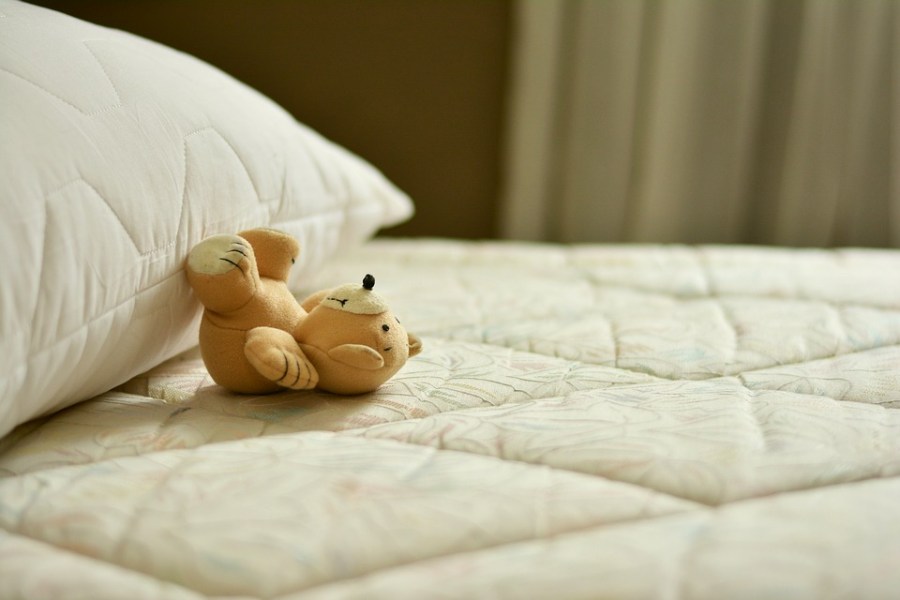how to make up a bed like a designer

While bed bugs aren't necessarily dangerous, they can wreak havoc on your home. They thrive on your blood and blood from your pets, and they can hide in the tiniest of spots. Despite their name, they can live practically anywhere, like on baseboards, under loose wallpaper, in sofa cushions, under posters and in furniture joints. Of course, they can also live in your bed. Getting rid of them is a challenge, but it's not impossible if you follow these steps.
Be Sure You Have Bed Bugs
Before you start the removal process, it's important to make sure you actually have a bed bug infestation rather than another type of pest, like fleas. Signs may include blood on your sheets and pillowcases, a musty odor and leftover items like shed skins, fecal matter or eggs. In many cases, you may actually have to spot the bugs themselves. They're small — about five millimeters — flat, brown and oval-shaped. Use a flashlight and magnifying glass if necessary.
Once you've identified that you have an infestation and have narrowed down where it has taken place (usually in the bedroom), it's time to start cleaning. You'll want to pick up all clutter from the impacted area, but don't remove it from the room just yet if it belongs elsewhere. If you do have to remove it from the room, seal it in a plastic bag. Once you have all the clutter picked up, take your vacuum cleaner and go over every inch of the room, including your electronics, mattress, walls, floors, carpet and even your dresser drawers. Dump the contents of the vacuum cleaner into a plastic bag, and seal it up before disposing of it in an outdoor garbage can.
Focus on Clothing and Linens
Next, you'll want to remove any fabric items from the impacted area and wash them as soon as possible. Don't take them out of the room without placing them in sealed plastic bags. This includes clothing, sheets, blankets, curtains, pet bedding, pillowcases and anything else you may have in the room. Wash them at the hottest-possible temperature setting on your machine. You want them to reach at least 120 degrees. Any linens that can't be washed should be placed in the dryer for a cycle. Unfortunately, not everything is salvageable. Items that can't be washed or placed in the dryer, like your mattress, furniture, certain items of clothing or bulky bedding, may need to be thrown away. Bed bugs can live for up to a year without a food source, so you can also try sealing these items up for a year. However, if you can replace them, that's always your best bet.
Get Rid of Bed Bug Hiding Places
In order to ensure you don't see another bed bug infestation, it's important to remove their favorite hiding places from the room. Seal up cracks in the walls, flooring or furniture. Fix any loose wallpaper. Open drawers, take the bed frame apart and move furniture to scrub and re-vacuum every inch of the room for added security. If you can't replace your mattress, scrub it with a hard-bristle brush, and seal it with a bed bug-proof cover. It keeps any bugs you missed inside the cover, and it doesn't allow new ones to get into your mattress. Don't remove the cover for at least a year.
Monitor the Infested Area
After you've cleaned everything in the infested area, you'll need to keep your eye on it. At the first sign of bed bugs reemerging, it may be time to resort to other measures to remove them. You can purchase items like insecticides and foggers to kill them, though many people aren't comfortable using these chemicals in areas where they sleep. If you do take this route, look for products that specify that they kill bed bugs. You may also find some natural alternatives available on the market. Unfortunately, not all of these products work on all bed bugs, so if you're unsuccessful, you may need to call in an exterminator.
MORE FROM QUESTIONSANSWERED.NET
how to make up a bed like a designer
Source: https://www.questionsanswered.net/article/how-to-remove-bed-bugs-from-your-home?utm_content=params%3Ao%3D740012%26ad%3DdirN%26qo%3DserpIndex